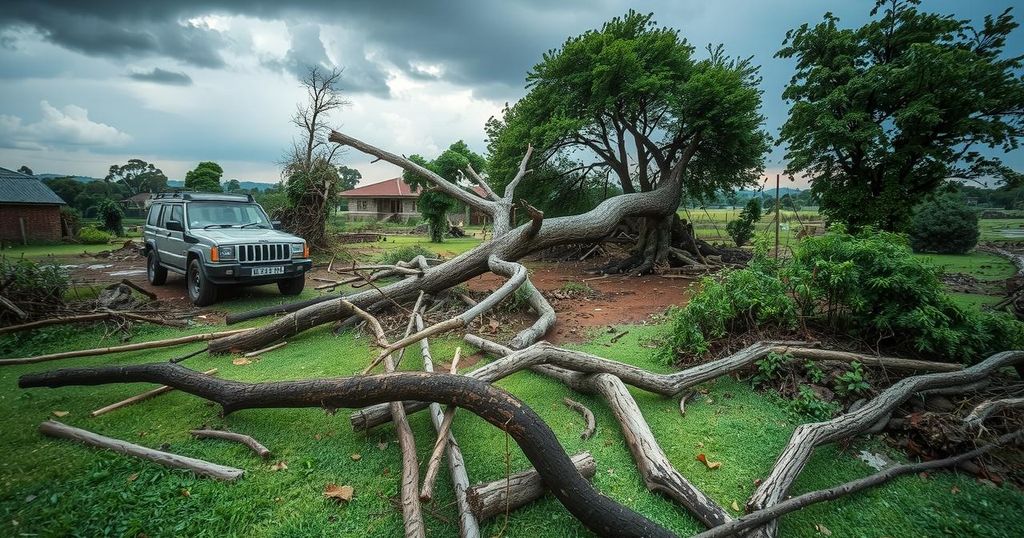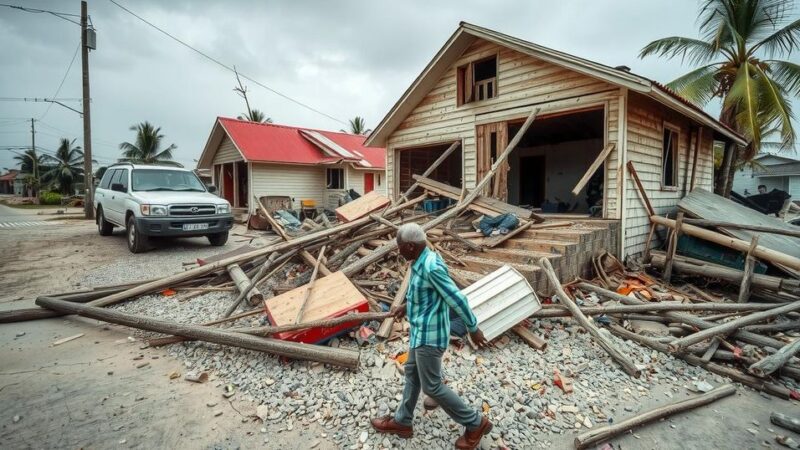Cyclone Chido has caused seven fatalities and affected over 30,000 individuals in Malawi, alongside significant damage to infrastructure. The storm’s aftermath has prompted government and humanitarian agencies to mobilize relief efforts for affected populations. Observations continue as officials monitor the Indian Ocean for further developments.
Tropical Cyclone Chido tragically claimed the lives of at least seven individuals in Malawi, impacting over 30,000 residents, as stated by disaster management officials on Tuesday. Malawi’s Department of Disaster Management Affairs released a preliminary assessment revealing that the storm damaged numerous structures, including schools and health facilities. Among the deceased, three individuals were from Salima district, with additional fatalities reported in Kasungu, Machinga, Blantyre, and Lilongwe districts. Furthermore, there were at least 16 recorded injuries due to the storm’s devastation.
Developed northeast of Madagascar in the Indian Ocean, Cyclone Chido made landfall near Nacala, Mozambique, where it inflicted considerable damage. Recent reports from the U.N. Office for the Coordination of Humanitarian Affairs indicate that the storm impacted over 174,000 people in Mozambique and 64,000 in the Comoros archipelago, destroying thousands of residences. After making its way through Malawi on Monday, Chido diminished into a moderate tropical storm, unleashing heavy rains and flooding across approximately 17 southern districts.
Lucy Mtilatila, the director of the Malawi Department of Climate Change and Meteorological Services, indicated that the storm has subsided. “Our eyes are on the Indian Ocean in case there will be another development,” she added. Thankfully, following the suspension of school classes for safety reasons, educational activities resumed promptly. According to spokesperson Chipiliro Khamula, the disaster agency has retracted its search and rescue teams from vulnerable areas and is now cooperating with humanitarian partners to deliver relief to those affected.
Cyclone Chido emerged northeast of Madagascar and impacted regions including Malawi, Mozambique, and the Comoros archipelago, prompting humanitarian and disaster management interventions. Over the years, tropical cyclones have posed significant threats to various regions in Southern Africa. The frequency and intensity of such weather events have raised concerns regarding disaster preparedness and the ability of local governments to respond effectively to large-scale emergencies. The assessment of damages and the recovery efforts highlight the need for ongoing disaster risk management strategies to support affected populations.
In conclusion, Cyclone Chido has exerted a devastating impact on Malawi, resulting in fatalities and extensive property damage across various districts. The situation has necessitated coordinated relief efforts among governmental and humanitarian organizations to support the affected communities. Continuous monitoring of potential future storms is vital as officials remain vigilant. Such incidents underscore the importance of resilience strategies and response planning in mitigating the effects of natural disasters.
Original Source: www.voanews.com







